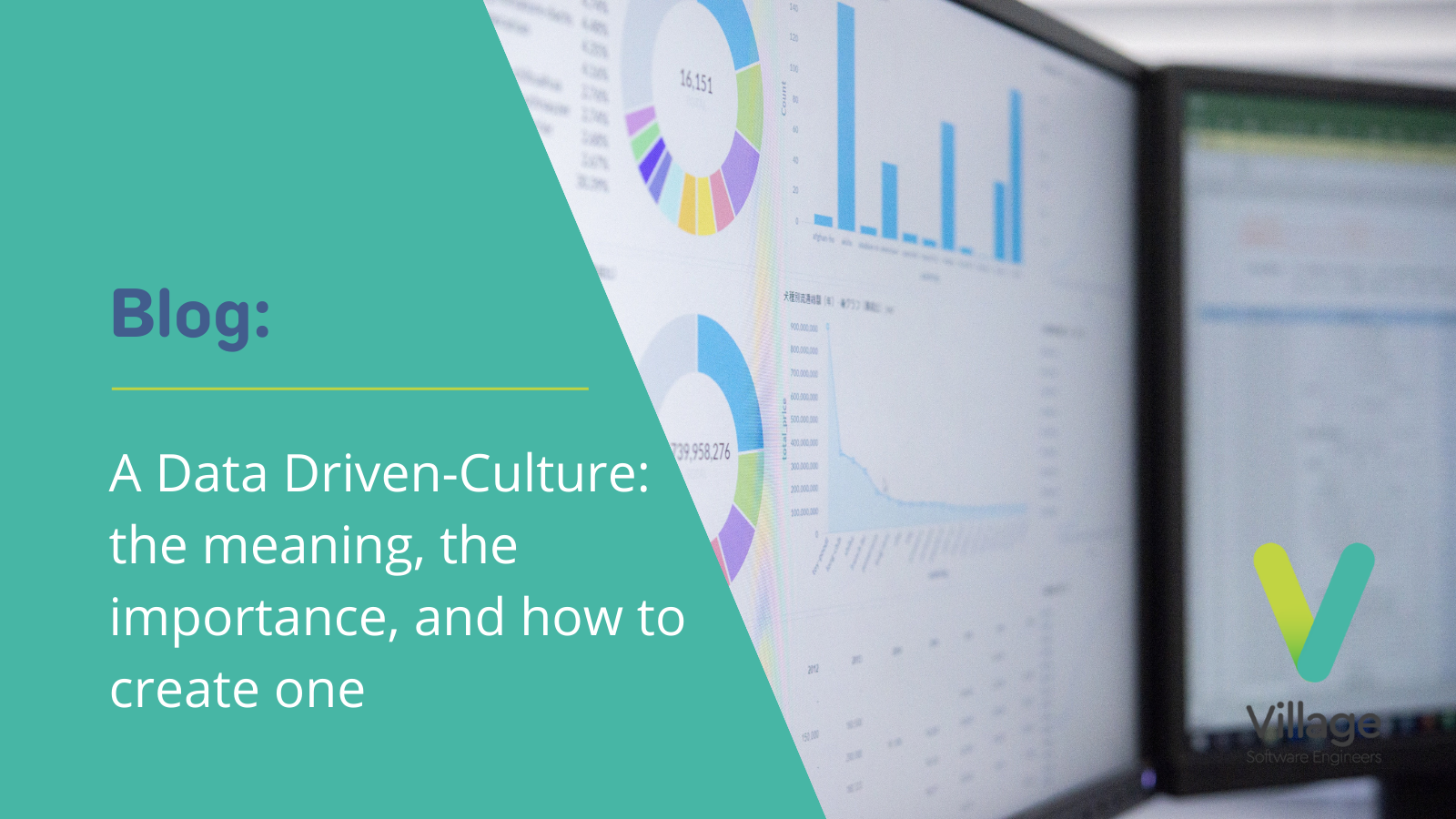A Data Driven-Culture: the meaning, the importance, and how to create one
Date: Monday, June 26, 2023
Data-driven decision-making is the process of using data to make informed decisions that can help businesses to achieve their goals. This approach has gained significant momentum in recent years due to the increasing amount of data available and the need to make sense of it all. A data-driven culture is one where data is at the heart of decision-making, and it permeates every aspect of the organisation. In this blog post, we will explore what a data-driven culture is, why it's important, and how to create one.
What Is a Data-Driven Culture?
A data-driven culture is a workplace environment where data is used to guide decision-making, instead of relying on intuition or past experience. It's a culture where everyone in the organisation has access to data and is empowered to use it to make informed decisions. In a data-driven culture, data is considered a strategic asset, and all decisions are based on insights gleaned from it.
Why Is a Data-Driven Culture Important?
A data-driven culture is crucial because it enables businesses to make better decisions that are based on facts rather than opinions. This approach ensures that the organisation is aligned towards achieving the same goals and objectives. Additionally, it can help businesses to stay ahead of their competitors by identifying trends, opportunities, and challenges quickly.
Creating a Data-Driven Culture
Creating a data-driven culture requires a concerted effort from all levels of the organisation. Here are some steps that can help in creating a data-driven culture:
- Start at the top
Leadership is crucial in creating a data-driven culture. It's essential to have executive buy-in and support to ensure that everyone in the organisation understands the importance of data. This support should be reflected in the organisation's vision, mission, and values.
2. Define the metrics that matter
The metrics that matter most will vary depending on the organisation and its objectives. It's crucial to identify the key performance indicators (KPIs) that will help in measuring progress towards the desired outcomes. These KPIs should be aligned with the organisation's goals and be easily measurable.
3. Make data accessible
Data should be easily accessible to everyone in the organisation. This can be achieved by creating dashboards, reports and other data visualizations, utilising tools that are easy to use. Additionally, data literacy training should be provided to ensure that everyone in the organisation understands how to read, interpret, and use data effectively.
4. Encourage data-driven decision-making
It's essential to encourage and reward data-driven decision-making in the organisation. This can be achieved by creating a culture where decisions are made based on facts and data, and not on intuition or past experience. Additionally, it's essential to provide feedback to individuals who make data-driven decisions to reinforce this behaviour
5. Continuously improve
Creating a data-driven culture is an ongoing process that requires continuous improvement. It's essential to monitor and evaluate the effectiveness of the data-driven culture regularly. This can be achieved by reviewing KPIs, conducting surveys, and soliciting feedback from employees.
Conclusion
Creating a data-driven culture is essential for businesses that want to stay ahead of the competition. It requires a concerted effort from all levels of the organisation, starting from the top. By defining the metrics that matter, making data accessible, encouraging data-driven decision-making, and continuously improving, businesses can create a culture where data is used to make informed decisions. Ultimately, a data-driven culture will help businesses to achieve their goals and objectives, while also creating a competitive advantage in the marketplace.
Get in touch with the team at Village Software to discuss your data requirements.
 About Us
About Us Services
Services Sectors
Sectors Case Studies
Case Studies Blog
Blog Contact
Contact



